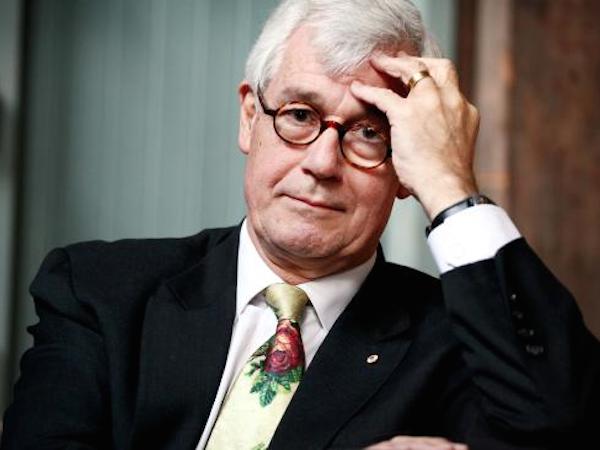Mr Burnside has set up two programs to aid refugees in need of accommodation and legal representation; Spare Rooms for Refugees and Free Lawyers for Refugees.
In a recent interview for upstart, Mr Burnside spoke with Haley Battersby about his vision for asylum seekers moving forward.
HB: Would you say there were any events, people or inspirations that lead you to where you are now?
JB: I actually was not planning to be a lawyer. I was always interested in justice or more particularly injustice. A friend of mine gave me Irving Stone’s biography of Clarence Darrow who was a great American trial lawyer in the first half of the 20th century and I read that with growing fascination because Darrow was a guy who was not only a very able trial lawyer or barrister as we would call them, he was also deeply interested in social justice and he pursued causes and I thought wow that’s really something.
Obviously I had never met him because he was dead before I started doing law but that was an inspirational character.
HB: Which case stands out the most for you?
JB: The case that stands out for me most was this family from Iran. They fled Iran and ended up locked up in a detention centre in the South Australian desert. A psychiatrist who heard about this went to Woomera and delivered a report to the department saying the 11 year old girl is in urgent need of psychiatric help. She could only get psychiatric treatment in Woomera once every 6 months, but she needed it every day and eventually the department moved the family to Maribyrnong in the western suburbs here. Although the reason for moving the family was that this kid needed daily psychiatric help, for the first couple of weeks of her stay nobody came to see her. No one at all, not a doctor, psychiatrist, social worker or nurse. And on the Sunday night on May of 2002 while her mother and father and her younger sister having their evening meal, this little girl took her bed sheet and hung herself. Because she was only young, she didn’t know how to tie the knot properly so she was still suffocating when they got back to their cell after dinner. They took her down, she and her mother were taken to hospital nearby with two guards so that as a matter of legal analysis they were still in immigration detention. Kon Karapanagiotidis from the Asylum Seeker Resource Centre (ASRC) which had only recently been set up had been looking after her visa application, heard about this and went to the hospital and said to the guards that he just wanted to speak to the mother to see if there was anything he could do to help and the guard said, “no, you’re not allowed to see them because lawyers visiting hours in immigration detention are nine to five”.
They sent him away. He then rang me at home and I distinctly remember the phone call even though it was 14 years ago. I was horrified to think that any system could mistreat a young kid so badly that she would try and kill herself and then turn someone away who was just offering basic human help. That is the one defining episode in my recent life that sort of changed the course of everything, because then and there I became attached to the issue to make sure we stopped behaving so badly.
HB: Is your asylum seeker relocation plan an ideal plan to solve this problem?
JB: I think it’s a rational and achievable way of dealing with boat people. It was really a compromise of practicality because I don’t think the ideal solution would work for a variety of reasons. What you do is accept reality and say well how should we treat people who are brave enough to risk their lives at sea to get to safety and that’s where the regional thing comes and it has the benefits of a) predictable harm that detention involves and b) it is vastly less expensive and c) it would operate to the benefit both of the regional towns where these peoples are required to live while their refugee status is being decided and it would be to the benefit of the refugees themselves. That’s the one that I would like to see get up.
HB: What kind of legacy would like to leave behind?
JB: I suppose in a perfect world… a benevolent refugee system. But to be honest, I don’t actually think about my legacy. If I was going to be remembered after I’m dead, I think I would kind of liked to be remembered as someone who supported the arts. I think the arts are important and I have spent a good part of my life doing what I can to help support the arts.
Feature image: www.thecultureconcept.com
Haley Battersby is a second-year Bachelor of Media and Communication student, majoring in Journalism. You can follow her on twitter @haleybattersby.







